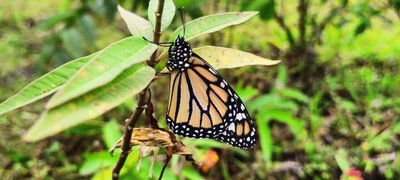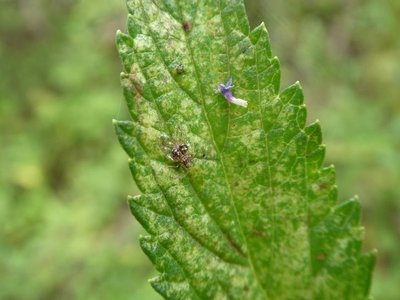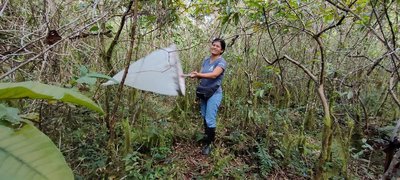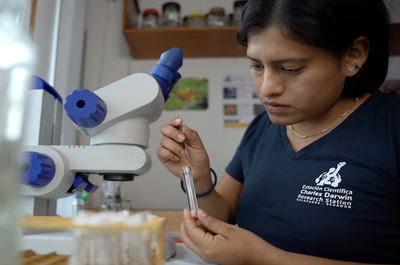Our entomologist Karen Vera, gave an interview to our strategic ally, Galapagos Conservation Trust, in which she shares her work experience in the Floreana Ecological Restoration Project, one of the largest eradication projects ever undertaken on an inhabited island.
Can you give a brief overview of your work in Galapagos?
I’m an entomologist specialising in terrestrial invertebrates at the Charles Darwin Foundation (CDF). I’m in charge of monitoring invertebrates on Floreana island which includes gathering information on their diversity. With this information, baselines of terrestrial invertebrate species and their populations are established to help characterise their habitat for reintroducing the 12 locally extinct species to Floreana.
My work involves collecting samples twice a year in the agricultural zone and protected areas, using a sweep net and pitfall traps. I also collaborate and contribute towards other invertebrate monitoring projects, helping to expand our knowledge of terrestrial invertebrate diversity across Galapagos, which helps to conserve entire ecosystems.



Why is it important to rewild and restore island ecosystems like Floreana?
Restoring ecosystems allows us to protect and preserve an island’s unique biodiversity. On Floreana, invasive species have caused 12 endemic species to go locally extinct and others to become vulnerable or critically endangered. By reintroducing the species Floreana has already lost, we are not only preserving diversity but are also protecting ecosystem services that are fundamental to us, such as pollination, pest control, food production, clean water supplies, climate regulation and soil formation. If these services were to be lost, it would significantly impact the quality of life of the local community. Rewilding and restoring Floreana’s ecosystems is essential to creating a balance between us and our environment.
What’s one piece of advice you would give to someone just starting their career in conservation?
The best advice I can give is to remain consistent. Having a passion for conservation requires you to be committed and will involve you continuously learning. This persistence and passion will not only provide important career opportunities and chances to collaborate with like-minded people, but it will be the driving force behind overcoming challenges. Seeing everything as an opportunity, celebrating successes and learning from mistakes will contribute to professional and personal growth. I know the road is not easy, but I am proof of how perseverance can lead you to a job you love.

What is your favourite Galapagos species and why?
I have a particular interest in microwasps, a group of terrestrial invertebrates that have received very little attention from scientists in the past. Despite being extremely small and often difficult to find, I am fascinated by their size, colour and shape diversity. They play essential roles as pollinators and biological controllers, regulating populations of other terrestrial invertebrates, including invasive species. For these reasons, they have become my favorite group of invertebrates, and I am always excited when I identify one.






